Harassment in the workplace is a serious issue
6 min readNighat Khalil is a lady health worker (LHW) and has been working in the field for more than a decade. She is proud of her work and provides whatever health facilities she can provide to the most vulnerable section of society, the women.
The Lady Health Worker Program began in 1994 and has through the years not only provided health facilities to women but also to children. A brilliant concept of providing medical care as basic as it is to women who probably have never been to a clinic in their lives. On the other hand, this program has financially empowered thousands of women across the country.
“We are not just health providers to the women, we sometimes also help resolve other issues,” Nighat Khalil said. “Many women we visit often consult us on other issues and we try to help if possible. It is sometimes quite difficult to find a solution but at least these women have someone they can trust to talk to. It makes me humble and sad because they are sometimes in trouble, sharing issues that are beyond our control.”
“I began working as LHW when I was twenty-nine and had four daughters and a son,” Nighat said, “I was training for my job. It was difficult to leave my young children at home, but our income was not enough to provide for our family.”
She said it was not easy and she faced problems in the field in the beginning. Apart from disapproval from her family for working in the field, people wouldn’t open doors to talk to LHWs. “I often felt disappointed and depressed especially when people in my family told me I should not go out and expose myself to needless danger. If it wasn’t for the support of my husband, I might have quit.”
As noble as this profession is and as respected as the LHWs should be by society, it is quite a different situation on the ground. LHWs sometimes must fight against customs and traditions when they opt for this profession. Sometimes they are ostracised by their own families for their work and struggle to justify ‘working in the field.’
And due to this LHWs are extremely vulnerable targets of harassment and sexual harassment.

“Like other professions, many LHWs face different problems including harassment and sexual harassment in the field,” Nighat said, “women working in an office may not face the same situation as those women working in the field. Several LHWs have stories of facing harassment in the field but they seldom speak out.”
Hence many incidents of harassment, sexual harassment, and violence go unreported as LHWs continue to work in fear. more common than the LHWs will admit as they fear there will be consequences and they think there is no one to turn to. During a training session on gender rights and protection in the workplace conducted by NOWCommunities – a Karachi-based NGO – some LHWs recalled how they have been in dangerous situations but remained silent as is a norm in our society. Harassment especially sexual harassment though common has been normalised by society despite the considerable number of women encountering this daily.
Nighat said many colleagues have encountered sexual harassment in the field, but they seldom talk about it as they have normalised it because they believe no one will help them.
Nighat said, “Like many of my colleagues I have faced sexual harassment as I went on the rounds, it was quite depressing. I felt scared and helpless. I didn’t think I could speak about it or turn to anyone for help.”
She said, “Sometimes when we go to a house to administer polio drops, we usually break into smaller groups but sometimes we must go alone. I have faced a few incidents in which I was terrified but fortunately didn’t get hurt. I went to this house and a man opened the door. I told him I wanted to talk to his wife, and he said his wife was inside with the children and lead me in. When I walked in, I realised it was a trap - there was no wife or children in the small house, and he had deceived me. I managed to leave but it was quite a terrifying incident and left me rattled for a long time.”

Nighat escaped but she may not be so lucky next time therefore it is imperative that LHWs and other women working in the field should be aware of not only the dangers they can encounter but also how to protect themselves.
Fortunately, the LHWs have a strong union - the All Pakistan Lady Health Workers Union(APLHW) - led by a dynamic union leader Bushra Arain. Bushra Arain is a force to reckon with and has been working hard to improve the working conditions of LHWs across Pakistan apart from rights like safety in the workplace; a better and streamlined salary structure; promotions and increments and awareness about laws and rights.
APLHW works with different organisations to plan training and awareness workshops for its members to empower them by making them aware of their rights.
In the last year, the APLHW has been working closely with NOWCommunities and planned a series of workshops for the members in which they were told about their rights against harassment and sexual harassment, their labour rights, their constitutional rights, who to talk to if they needed help and the most important of all what is the importance of being part of a union.
Nighat said the workshops were important and helpful for her and her colleagues, they felt stronger and better. She said many LHWs will agree that these workshops helped them feel liberated. “Until I attended a workshop session organised by our union and NOWCommunities on sexual harassment in the workplace and laws, I didn’t know I could do anything to stop the harassment in the workplace. I didn’t know how important a union is and how it can help us to become stronger in numbers. I wanted to find out what our rights. I learned that we need to help ourselves first before helping others. The union has educated us about our rights through different workshops.”
Nighat knows that it will take time to change things, but she is happy that at least the union is helping to strengthen the LHWs. She loves her work as she feels she is contributing to society in a country where thousands of women are deprived of the basic right to live a healthier life. She is also quite happy that LHWs are not only health providers but also function as counsels and confidantes to women who have no one to turn to.
“Our work allows us to not only inform women about their health and their children but also about the importance of family planning which does not only mean contraceptives and how to be healthy. I try to tell women about their rights as women and humans and the responsibilities of their husbands towards the family and their wives. Most women appreciate this effort and thank us for enlightening them about their rights.”
Nighat added the government should ensure LHWs are protected from harassment, sexual harassment, and violence in the workplace and provide relief under the Protection against Harassment of Women at the Workplace Act 2010.
For the latest news, follow us on Twitter @Aaj_Urdu. We are also on Facebook, Instagram and YouTube.











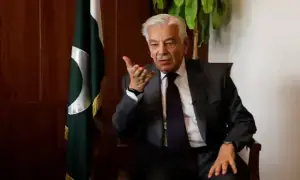
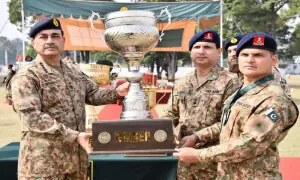
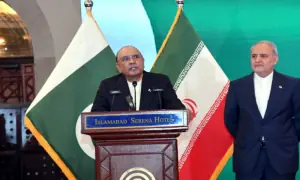
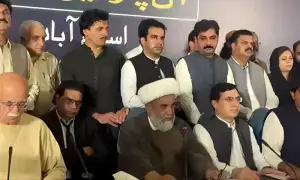
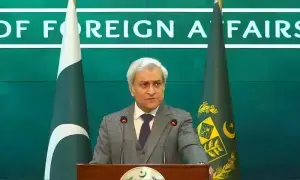
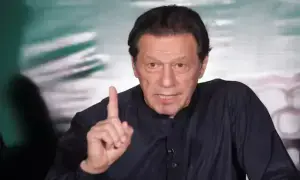
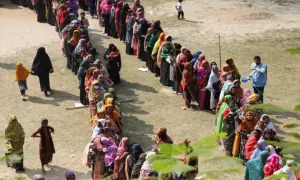
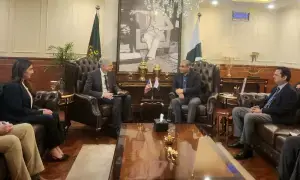
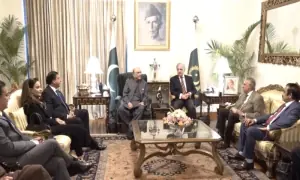
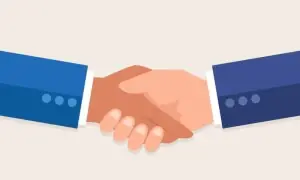
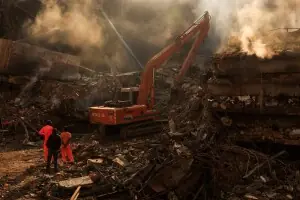

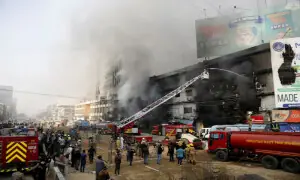

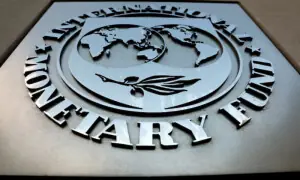
Comments are closed on this story.